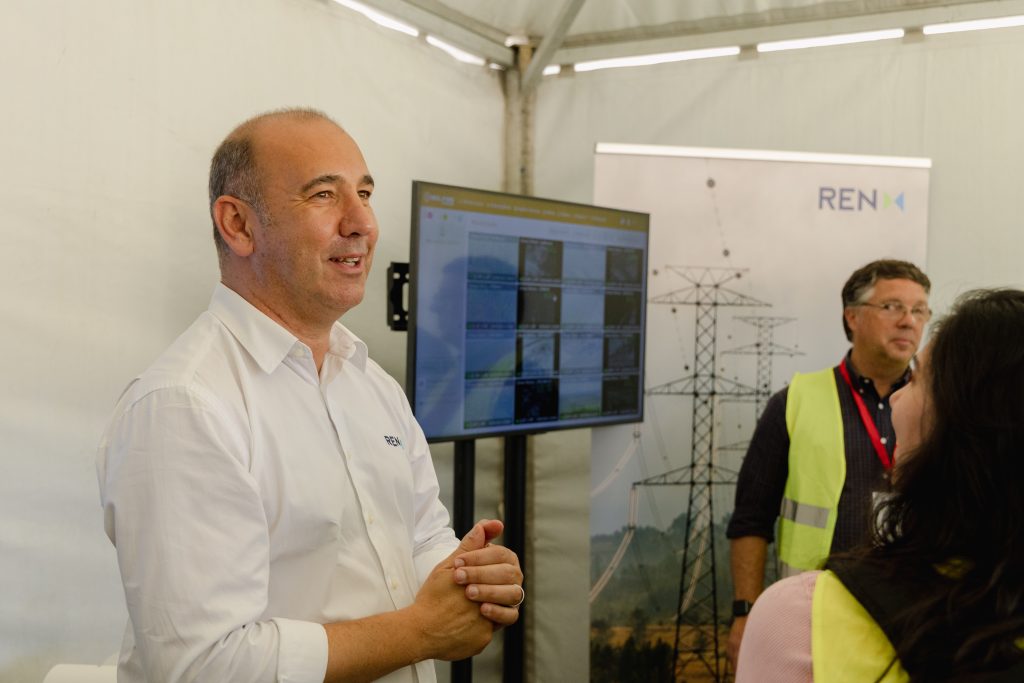More than five thousand of the six thousand hectares of the Parque das Serras do Porto are from this Monday covered by four optical cameras with a range of 10 kilometers and able to detect fire in the dark.
The description of the new equipment that will be presented this Monday in Paredes was made to Lusa by two of the leaders of the technological project rePLANT, Carlos Fonseca, Scientific and Technological Director of CoLAB ForestWISE, and Xavier Viegas, responsible for the project of optical cameras and fire simulator, University of Coimbra.
Comprising six mountain ranges – Santa Justa, Pias, Castiçal, Santa Iria, Flores and Banjas – the park covers the municipalities of Gondomar, Paredes and Valongo, in the Metropolitan Area of Porto and has an extension of almost 6,000 hectares, an area that will now be under the surveillance of the project rePLANT.
According to Carlos Fonseca, there are four cameras covering 5.1 thousand hectares, or 85% of the territory. The cameras have a range of 10 kilometers and operate in 360 degrees 24 hours a day.
“The idea will be to densify the network by installing more cameras, but also to improve the software and algorithms that allow us to obtain finer and more accurate information,” added the project coordinator, explaining that the interventions “are mainly located in the fuel management strips under the responsibility of REN [Redes Energéticas Nacionais], whose very high voltage lines cross six thousand hectares.
He said that these strips are “45 meters wide and many tens of kilometers long.
For Xavier Viegas, the four cameras, managed by the GNR, are installed on REN poles and are a complement to the surveillance systems that already exist, also working as a “deterrent effect”.
“In addition, and for me more important, is that they have a deterrent effect (…), may serve as an inhibitor of careless action and malicious fire because, in the limit, the cameras can not only locate the origin of the fire but also relate it to the movement of people and vehicles, thus leading to the author of the focus of fire, “emphasized the expert from the University of Coimbra.
As for other added value of the cameras, he added that they are “also important in monitoring fires, because if there is an occurrence, the images allow us to see the flames in the dark of night.
Xavier Viegas also pointed out that the project “involves a lot of technology, machinery, and equipment that allow, in large part, to make up for the lack of human resources, the lack of presence of people in rural environments (…) as well as to manage data and replace routine and, in some cases, even dangerous tasks, freeing people for other tasks that are also necessary and certainly more noble.
About another of the innovations, the fire simulator, said to be a computer system that receives information about “environment, geography, topography covered vegetation, weather conditions and the location of the fire, thus helping firefighters in fighting the flames (…) estimating where the intervention can be safer, given the energy that is released by the fire, if the area is compatible with firefighting and also estimate what will be the eventual success, among other scenarios”.
The Mayor of Paredes and, in 2023, of the Oporto Mountains Parks Association, Alexandre Almeida, highlighted to Lusa the “luck of having three private companies, Sonae Arauco, REN and Navigator, which own part of the six thousand hectares of the Mountains Park, with the same interests in the management of the territory”.
“Technological innovations have been introduced, such as robots, which will clean the forest, cameras and mobile applications to manage the evolution of the new species planted, which contribute to the grand design of making the Parque das Serras available to the population,” described the head of the Park.
In, AgroPortal, 15 May 2023 (PT)

